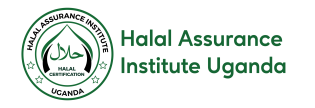Benefits of Halal Certification

Benefits of Halal Certification
Competitive Advantage: With certification, companies can distinguish themselves in competitive markets, making their products more appealing to a broader customer base.
Halal certification in Uganda can help businesses to comply with international standards and regulations, such as ISO 9001, Food Safety Management System and HACCP, which can be required by certain customers or markets.
The Halal Certification Scheme provides technical audit of product quality, safety and process control procedures. This means that the Manufacturer gets technical advisory services and information at little or no cost that would otherwise be obtained at very high cost.
Expanding Consumer Base: Many consumers view halal products as higher quality or more ethical, as halal standards include general food hygiene & Sanitation, product safety in production, performance and general manufacturing quality control and quality assurance.
Access to Global Markets: Halal certification opens business doors to Muslim-majority markets in countries like the Middle East, Southeast Asia, and North Africa, where halal standards are often mandatory. The lucrative global Halal market is valued and projected to reach e-commerce levels of US$ 183.8 trillion by 2032, as claimed by the IMARC Group’s research report.
Better Product image: The halal certified products are presented with a better image in both national and international markets resulting into mutual recognition schemes where countries recognize each other’s products thus easing entry into regional and foreign markets; easy acceptance and promotion of new products in the markets; and safeguarding the image and reputation of the manufacturer.
Cleaner Production Standards: Halal guidelines often require high standards of manufacturing and production hygiene, quality control, ensuring safer products for consumers.
Halal certification in Uganda can help businesses to ensure that their products meet strict quality and safety standards, as halal certification requires compliance with specific rules and regulatory safety controls; along the production value-chains.
Traceability and Transparency: Halal certification involves strict traceability of ingredients, helping consumers know what goes into their products and reducing the risk of contamination or adulteration.
Risk Reduction: Halal-certified products must avoid cross-contamination with non-halal substances, which can reduce risks of foodborne illnesses and recalls.
Ethical Assurance: Halal certification assures consumers that products are free from prohibited ingredients (like pork and alcohol) and meet ethical standards, building trust among consumers who value religious or ethical integrity.
Regulatory Compliance: In countries that require halal-certified imports, having this certification simplifies compliance with import regulations and facilitates smoother entry into these markets.
Third-Party Verification: Certification by a reputable halal authority adds credibility, showing that products meet rigorous standards for wholesomeness, sourcing, and handling.
Pharmaceuticals and Cosmetics: Demand is rising for halal-certified medicines, cosmetics, and personal care products, as consumers seek items that align with their beliefs. Certification enables companies to serve this expanding market.
Tourism and Hospitality: Halal certification can enhance a company’s appeal in halal tourism, a growing sector that caters to travelers seeking halal food, halal-friendly accommodations, and lifestyle products.
Corporate Responsibility: Companies that prioritize halal certification can position themselves as socially responsible, aligning with consumers who value principled and sustainable practices.
Improving brand image and reputation: Halal certification in Uganda can help businesses to improve their brand image and reputation, as halal certification is perceived as a sign of product quality, reliability and consistency.
Customer Loyalty: By meeting the needs of Muslim consumers, halal-certified companies can build loyalty among customers who seek steadfast halal options.
Halal standards emphasize animal welfare, ethical sourcing, and minimizing environmental impact, appealing to eco-conscious consumers as well.
Overall, halal certification supports brand growth, ethical standards, consumer trust, and access to a large, diverse global market. It’s important to note that the benefits of halal certification can vary depending on the industry, the product, and the target market. However, in general, halal Certification can be a valuable tool for businesses that want to reach markets where halal products are in demand.


